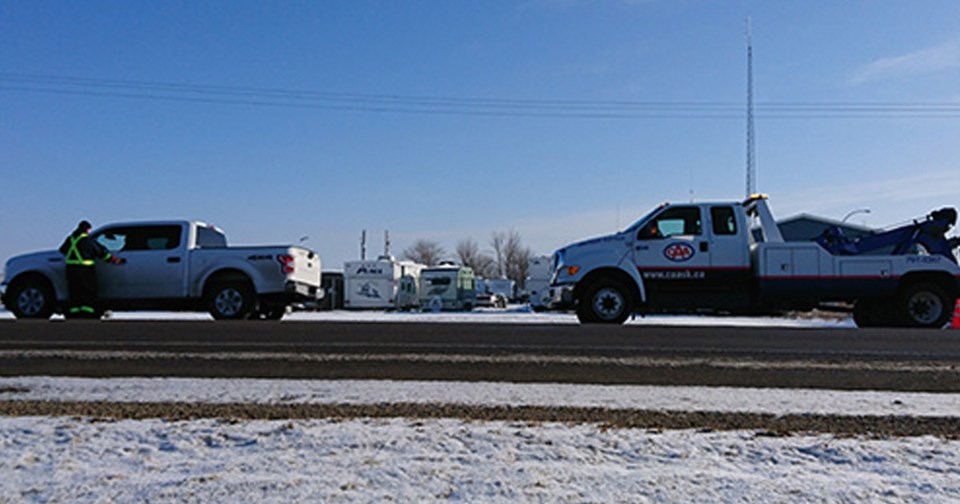REGINA — Since the extreme cold weather conditions started on Jan. 11, CAA Roadside Assistance said it’s had about 4,000 calls for help.
In a release issued Tuesday afternoon, CAA said it has experienced a significant increase in requests from CAA members for battery boosts, tows, lock outs, fuel, and air delivery.
The release asked for patience, saying, “CAA appreciates the patience and understanding of our members knowing that wait times for service have increased, and apologizes for the frustration.”
The release also pointed out how duplicate requests may have slowed things down.
“It’s important to know that the request for service has only to be made once whether the initial request is via phone, app, or online. Duplicate requests for the same initial service do not need to be made, as that is causing an unnecessary buildup of requests in our roadside assistance system.”
Because of the weather, some services have been curtailed.
“Please note that the CAA Battery Service to members in Saskatoon and Regina has been cancelled due to the colder weather temperatures,” stated the release.
CAA also said staff are working to keep up with the requests.
“For the CAA Members who have requested CAA Roadside Assistance via phone, online, or app, please know that the requests, which are important to CAA, are being managed as promptly and as professionally as possible.”
CAA said the Roadside Assistance Communications Centre is fully staffed and works around the clock to ensure all requests are being handled. CAA has a Regina fleet working in Regina and area and around 150 contractors in the province to provide 24/7 roadside assistance.
Tips from CAA
When making requests for CAA Roadside Assistance, members should provide their name, CAA membership number, phone number, and location of the vehicle requiring service. The CAA Communications Centre staff may be able to contact the member to let them know when service will arrive, however, this is dependent on the volume of calls.
If drivers become stranded, it’s very important to stay in your vehicle as it does provide temporary shelter until help arrives. Never wait outdoors for help in cold weather conditions, and if the vehicle can be parked out of harm’s way, have the vehicle occupants wait in a nearby building, i.e., shopping mall, office building, school, gym, gas station, etc.
CAA Saskatchewan would like to remind all motorists to respect all tow operators, and first responders working on our highways and roads, and to give them the space they need to get the work done. They are working as best they can in these extremely cold winter conditions. Please remember to slow down, move over.
To help keep everyone safe, here are a few reminders:
Pack a roadside safety kit: Items to include – non-perishable food, a shovel, window ice scraper, snow brush and booster cables. Pack extra winter gear such as mitts, toques, parkas, footwear, and blankets for all passengers. Remember, roadside safety kits are available at all CAA Saskatchewan Stores.
Stay connected: Pack a mobile phone and charger to use in case of emergencies or calling for . Ensure that your driver’s license, vehicle insurance, travel insurance, and CAA membership are up to date.
Check your tire pressure: The right pressure is important for traction and fuel efficiency. Check the air pressure regularly. Improper inflation can not only be dangerous but can also cause increased tire wear resulting in added costs for replacement tires.
Brakes: Have your brakes inspected thoroughly and service them if necessary. This will help with better braking power especially on icy, snow-covered roads.
Check your vehicle’s battery: Extreme weather weakens the battery, and it may require changing or charging. If the battery is more than 3 years old, it likely needs to be replaced.
Top Up Fluids: This includes antifreeze, brake fluid, and window washer fluid which are all vital to safe winter travel. Examine belts for proper belt tension.
Fuel: Keep a full tank or at minimum a half tank of fuel. This will help reduce moisture in the gas tank plus it adds weight to your vehicle.
Block heater and cord: Make sure the block heater cord is not frayed. Always plug in at -15°C.
For further information, visit .

-winter-weather.jpg;w=120;h=80;mode=crop)


